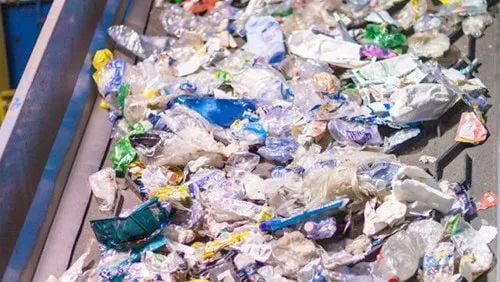The fifth session of the United Nations Environment Assembly (UNEA-5), held in Nairobi, Kenya, from February 28 to March 2 this year, will establish a global and legally binding agreement on plastics to prevent their abandonment in the environment.
The United Nations Environment Assembly, part of the United Nations Environment Programme (UNEP), meets every two years and hosts representatives from 193 UN member states, businesses, non-governmental organizations and civil society to agree on common policies to address the most pressing environmental challenges. This year's theme, "Strengthening Action for Nature to Achieve the Sustainable Development Goals," will focus on plastic pollution.
At the conference, the EU will be represented by Virginijus Sinkevicius, Commissioner for Environment, Sea and Fisheries, and announced its intention to establish a scientific expert group on chemicals, waste and pollution within the Treaty to provide scientific advice globally, tracking the role of the Intergovernmental Panel on Climate Change, an international plant protection convention on plastic pollution.

"Our planet is facing a triple crisis of climate change, biodiversity loss and pollution," commented Sinkevicius. "The EU is not only addressing this issue within its borders, but also building alliances at the international level, as we must tackle these global challenges together."
In addition to the establishment of an intergovernmental group, what the EU wants to achieve in the Kenyan negotiations is first and foremost the establishment of an international negotiating committee, which is the first step towards a binding agreement on plastics at the global level, based on a circular approach and the life cycle of manufactured goods, as described in the EU action plan for the circular economy.
The second point concerns the common definition and promotion of nature-based solutions, i.e. actions aimed at protecting, managing and restoring damaged ecosystems in a sustainable manner. "The lack of an internationally agreed definition of nature-based solutions currently hinders progress in the various negotiation processes and can lead to distortions in the form and classification of 'greenwash' assets," the European Commission said in a statement. "The EU will work towards a common definition to facilitate discussions in COP15 and other UN environments, such as the UN climate convention."
The negotiations will be accompanied by side events, including an event proposed by the European Commission entitled "The 'Zero Pollution Ambition' for Nature and People", scheduled for March 1, 2022, in the presence of Commissioner and Executive Director of Sinkevicius Inger Andersen, who will identify actions and methods that can contribute to effective pollution reduction.

